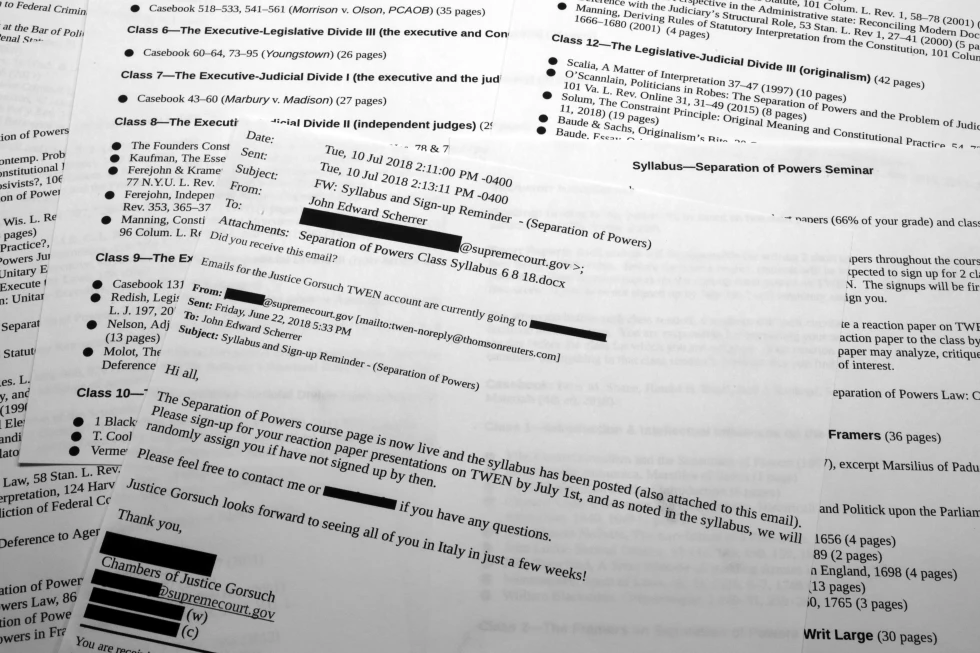
PHOENIX— A nationwide review of procedures by The Associated Press and CNHI News revealed a patchwork of complicated systems for resolving open government disputes that often put the burden of enforcing transparency laws on private citizens.
The review, timed to Sunshine Week, found that fewer than a third of states have offices that can resolve residents’ complaints by forcing agencies to turn over documents or comply with open meetings requirements.
In most states, the only meaningful option for residents to resolve complaints about agencies wrongfully withholding public records is to file costly lawsuits.
Here is a state-by-state breakdown of the mechanisms for resolving open government disputes across the U.S.
ALABAMA
In Alabama, the only avenue for resolving complaints about alleged violations of state public records or open meetings law is to file a lawsuit. The Alabama attorney general generally does not play a significant role in enforcing state open government laws.
ALASKA
Alaska residents’ only option for formally resolving complaints about alleged violations of state public records or open meetings law is to sue. If an open government dispute involves a state agency, residents can file a complaint with the Alaska State Ombudsman, which can investigate. The ombudsman can make recommendations and publish its findings, but it has no authority to enforce compliance.
ARIZONA
Generally, Arizona residents must go to court to resolve open government disputes. The Arizona Ombudsman-Citizens’ Aide does receive complaints about public records and meeting access, and the agency can answer questions, mediate between complainants and agencies, and formally investigate complaints. But it does not have authority to force agency compliance. Residents can ask the attorney general or their county attorney to file a lawsuit to enforce open meetings laws, but these offices can’t file lawsuits to enforce public records law. Residents must pursue private litigation to resolve records disputes.
ARKANSAS
Arkansas has no state entity that adjudicates complaints about alleged open meetings or open records law violations. A resident who has a complaint can either ask a local prosecutor to pursue charges at their discretion or file a lawsuit in state court.
CALIFORNIA
Generally, the only avenue for members of the public to resolve open government disputes in California is to sue. There is no ombudsman or equivalent office that adjudicates open government disputes. The attorney general and local prosecutors do have some authority to go to court over alleged open meetings violations.
COLORADO
Colorado has no independent office that adjudicates complaints about alleged public records and open meeting law violations, and the attorney general typically does not play a role. The only option for residents is to file a lawsuit.
CONNECTICUT
The Connecticut Freedom of Information Commission receives and adjudicates complaints about alleged violations of state open meetings and open records law. The commission can determine if open records laws were violated and issue orders requiring that an agency release records. It can also impose penalties on agencies, including fines and mandatory training sessions on open government law.
DELAWARE
Residents can petition the Delaware attorney general to assess whether a violation of open meeting or open records laws has occurred or is slated to occur. The attorney general’s office can issue a written opinion on the matter. If a public body does not comply with the opinion, residents can file a lawsuit themselves or ask the attorney general to sue on their behalf.
DISTRICT OF COLUMBIA
Members of the public can appeal denied records requests involving an executive branch agency to the D.C. mayor’s office, or sue in court. For records disputes concerning the district’s legislative branch, the only option is to sue in court. Complaints regarding open meetings can only be handled by the Office of Open Government, which can investigate, issue advisory opinions, and potentially file suit.
FLORIDA
Generally, there are two ways to resolve disputes over alleged public records non-compliance in Florida. The first is mediation between the complainant and the agency overseen by the Florida Attorney General’s Office, but the mediation is voluntary. The second route is to sue. Members of the public can sue to resolve open meetings disputes, and local prosecutors can enforce the law.
GEORGIA
Generally, Georgians must pursue legal action to resolve open government disputes. Residents can file certain open meetings or public records complaints to the Georgia attorney general’s voluntary Open Government Mediation Program, which involves the office reviewing the complaint and contacting the involved agency.
HAWAII
People can file open meetings and open records complaints with the Hawaii Office of Information Practices. In addition to providing training, advice and general information, the office can issue enforceable opinions in such disputes, which can be appealed in court. Individuals can also file lawsuits to resolve open government disputes.
IDAHO
There is no entity in Idaho that adjudicates residents’ complaints about open records issues. Generally, residents’ only recourse is to sue. The Idaho attorney general does have the authority to file lawsuits against agencies that have violated open meetings law and have not resolved the issue when informed of the violation.
ILLINOIS
The Public Access Counselor, which is part of the Illinois Office of the Attorney General, can issue binding or non-binding opinions in response to complaints regarding open meetings and public records disputes. The counselor can also provide mediation. Additionally, members of the public can sue in court.
INDIANA
Residents can submit complaints about alleged violations of public records or open meetings law to the Indiana Public Access Counselor. While the counselor has the authority to issue advisory opinions in these disputes, the counselor cannot force agencies to comply. Residents must sue to enforce them.
IOWA
The Iowa Public Information Board receives and investigates complaints from residents about alleged violations of open meetings and public records law. It can provide advice, resolve disputes through informal mediation, or issue orders that require compliance with sunshine laws. Alternatively, members of the public can sue in court.
KANSAS
Residents can sue in court or submit complaints about alleged open meetings and open records law violations to the Kansas attorney general. The office can investigate the allegations and potentially issue a consent order or a finding of violation.
KENTUCKY
Residents can either file a lawsuit or they can ask the Kentucky attorney general to review disputes over open meetings and public records issues. The office can issue binding opinions in such cases, though a public body can appeal the opinions in court.
LOUISIANA
Generally, the only recourse for resolving open meetings and public records disputes in Louisiana is to sue in court. The Louisiana Office of the Attorney General can receive complaints about alleged violations of state open meeting law, but the office does not handle complaints about public records issues.
MAINE
Generally, the public’s only recourse in open government disputes in Maine is to sue in court. The Public Access Ombudsman, which is part of the Maine Office of the Attorney General, can answer inquiries from the public about open meetings and public records law, as well as mediate between residents and public bodies in open government disputes. But the ombudsman can’t independently enforce open government law.




